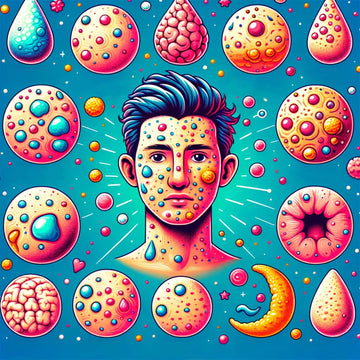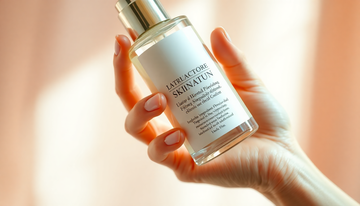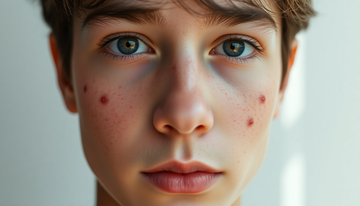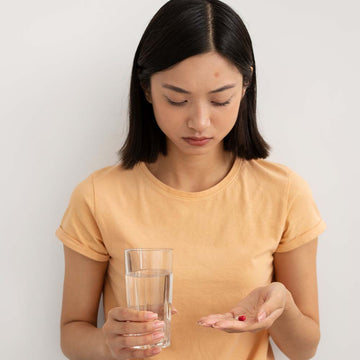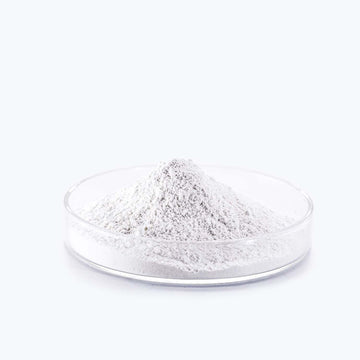Introduction to Acne Welcome to our comprehensive guide on the diverse world of acne! Have you ever wondered why those pesky pimples pop up in the most inconvenient places? Well, it's time to dive deep and understand the different "faces" of acne. Knowing your acne type is not just about skincare; it's about taking control of your skin health.
Types of Acne
Non-Inflammatory Acne
Whiteheads
These little bumps stay under the skin, forming a white head. They're like uninvited guests at your skin's party, refusing to pop out!
Blackheads
Ah, blackheads! They're like the open pores on your skin taking a deep breath, and in doing so, they turn black due to exposure to air. Not because they're dirty, but because they love a bit of drama.
Inflammatory Acne
Papules
These are the reddish, tender mini-mountains that appear on your skin. They're small but mighty in causing skin annoyance.
Pustules
Picture a papule, but now it's filled with pus. Yep, that's a pustule for you - not the prettiest sight, but quite common.
Nodules
These are the big bosses of acne. Large, painful, and buried deep in the skin, nodules are like underground rebels causing chaos.
Cystic Acne
The most severe form, cystic acne, is like a full-blown skin rebellion. Painful, deep, and often leaving a mark, they demand serious attention.
Causes of Different Acne Types
Genetic Factors
Did your parents have acne? Chances are, you might too. It's like a not-so-fun family heirloom.
Hormonal Changes
Puberty, pregnancy, or any hormonal rollercoaster can invite acne to the party.
Environmental Impact
Pollution and humidity are like the annoying neighbors that aggravate your skin.
Dietary Influence
And yes, what you eat can show up on your skin. Too much dairy or sugary snacks can be secret acne culprits.
Treatment Strategies for Acne
Over-the-Counter Solutions
Salicylic acid, benzoyl peroxide - these are your go-to acne fighters available at any local pharmacy.
Prescription Medications
For the tough cases, your dermatologist might bring out the big guns - prescription meds like retinoids or isotretinoin.
Natural Remedies
Some swear by tea tree oil or green tea. Nature’s little gifts for your skin!
Lifestyle Changes
A little exercise, some dietary changes, and stress management can go a long way in keeping acne at bay.
Preventing Acne Flare-Ups
Skincare Routines
Cleanse, moisturize, repeat! A gentle skincare routine can keep those pores happy.
Dietary Adjustments
More greens, less sugar. Your skin will thank you.
Stress Management
Yoga, meditation, or just some quality me-time can help keep stress-induced acne away.
Coping Mechanisms
Talk about it, seek support, and remember, you're more than your skin.
Conclusion
Conclusion
There you have it - a whirlwind tour of the acne universe. Remember, acne is common, and you're not alone in this journey. With the right knowledge and care, you can manage it effectively. Keep your chin up (and clean)! For further detailed and research-backed information about different types of acne, be sure to visit the National Institute of Arthritis and Musculoskeletal and Skin Diseases (NIAMS) website. You can find their comprehensive acne guide at: https://www.niams.nih.gov/health-topics/acne.
FAQs Answers
-
What's the difference between whiteheads and blackheads? Whiteheads are formed when pores clog up completely, trapping sebum, bacteria, and dead skin cells inside, leading to a white appearance at the top. Blackheads occur when pores are partially blocked, allowing some of the trapped sebum and dead skin cells to slowly drain to the surface. The black color is not dirt but rather oxidation of the contents at the surface.
-
Can hormonal changes cause different types of acne? Yes, hormonal changes can lead to various types of acne. Fluctuations in hormones, particularly androgens, can increase sebum production, leading to more frequent and severe breakouts. This is often seen during puberty, menstrual cycles, pregnancy, and with certain medical conditions or medications.
-
Are there any effective natural remedies for acne? Some natural remedies can be effective for mild acne. Tea tree oil is known for its antibacterial properties, which can help reduce acne-causing bacteria. Green tea extract has anti-inflammatory properties, and aloe vera can soothe irritated skin. However, these remedies may not be effective for more severe forms of acne.
-
How can I prevent acne flare-ups? Preventing acne flare-ups involves a combination of good skincare and lifestyle choices. This includes using non-comedogenic skincare products, cleansing the skin gently but thoroughly, avoiding excessive scrubbing, maintaining a balanced diet, staying hydrated, managing stress, and avoiding known acne triggers.
-
Does stress really affect acne? Yes, stress can impact acne. Stress does not directly cause acne, but it can exacerbate existing conditions. It triggers the release of cortisol, a hormone that can increase oil production in your skin, thereby worsening acne.
